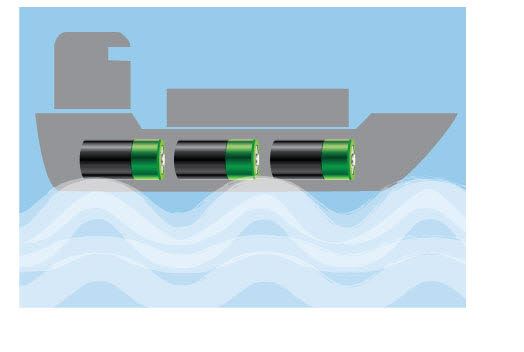An energy storage system on a vessel can have several advantages and can be utilized for several different purposes depending on the onboard power system configuration. The intended use, as well as class society requirements for safety and power availability has to be accounted for when optimizing the sizing of such energy storage systems.
The knowledge and experience of how to select the best combination and size of energy storage within the required constraints for safety and power availability is not in the public domain, and practical system designs depend on recommendations from specialized consultancy services or battery manufacturers.
Thus, the project aims to make knowledge on design and optimization of marine energy systems available to the wider industry. This will be obtained through the development of a generalized methodology for selecting and sizing the energy storage for a given vessel, considering applicable class rules, a given operating profile and required energy storage lifetime. The methodology will towards the end of the project be implemented in a tool for demonstration and testing and to facilitate rapid vessel design development.
The project is targeting the topic of Green Shipping, subtopic Energy Efficiency, in the Joint Call for Proposals in Maritime Research between Singapore and Norway. Knowledge relevant for reducing the cost and risk of a shift towards greener and more efficient vessel power systems with reduced fuel consumption fits well within the ambitions of reducing the emissions from the maritime transportation.
Norway and Singapore have both maritime industries that include yards, ship designers and equipment manufacturers that can benefit from such knowledge.
Research partner:
This is a Knowledge-building project with support from the Research Council of Norway, Singapore Maritime Institute and industry partners in Singapore and Norway.

